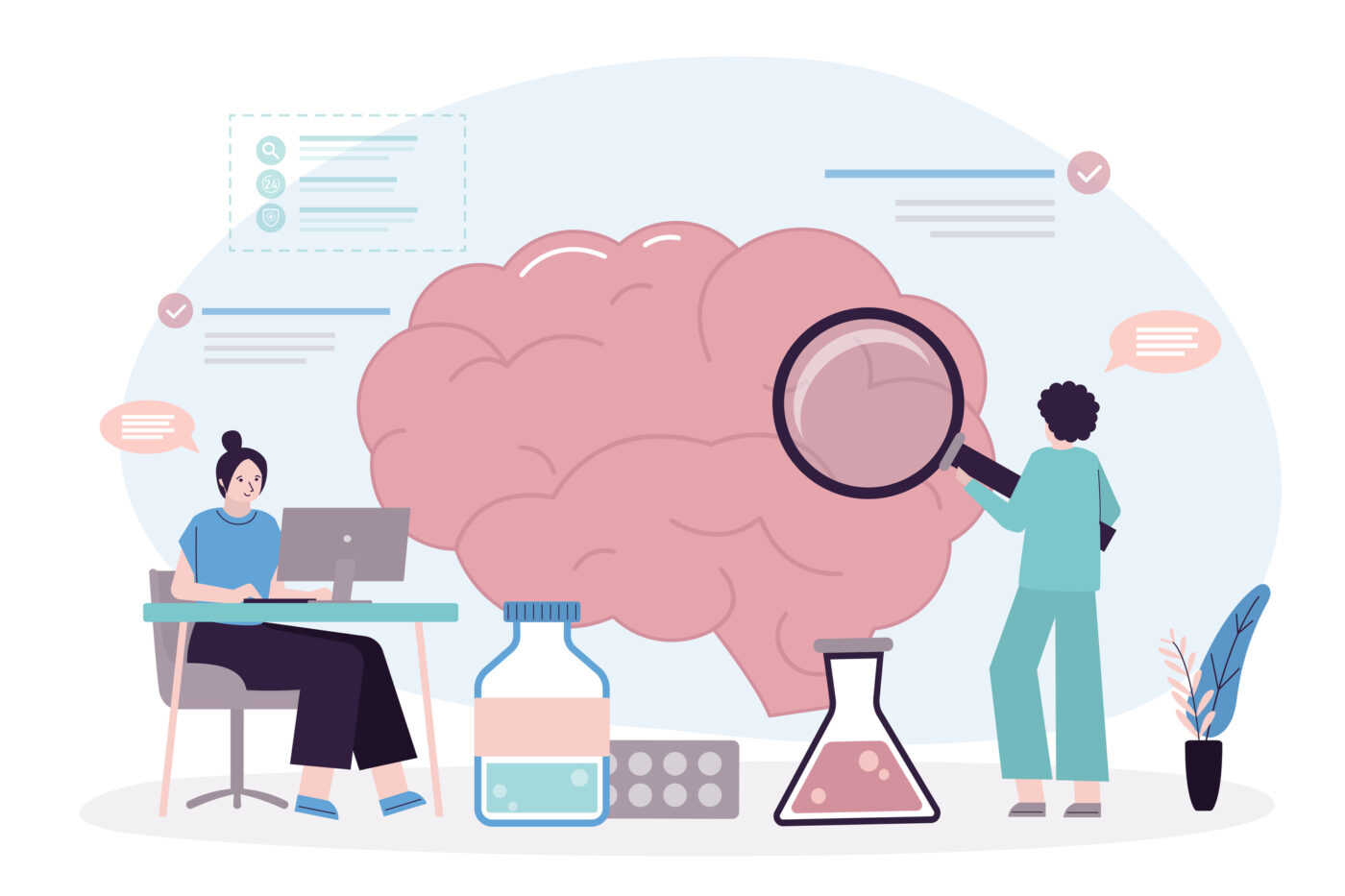9 Reasons Why You Are Not Losing Weight On Keto

You have been trying to lose weight on keto, but it’s just not happening. You cut out sugar, starchy carbs, included more vegetables and healthy fats into your diet – but you haven’t lost a single pound.
Remember: DO NOT get discouraged. This is not the time to panic – perhaps the only thing you need to do is to implement small changes into your diet and adjust your body to adopt fat and ketones as fuel, instead of using glucose from carbohydrates.
As a helpful reminder, your ketogenic diet macros should be:
- 70-80% Of Calories From Fats
- 20-25% Of Calories From Protein
- 5-10% Of Calories From Carbohydrates
Also: You should eat between 20g to 50g net carbs per day. For those who are just starting their ketogenic diet journey, try to follow the Standard Ketogenic Diet (SKD) protocol and stay between 20-30g net carbs and see how this range works out for you.

1. You’re Not Actually In Ketosis.
After a few weeks of following the keto diet, you may think you are in ketosis. However, if you are not losing weight or reaching the goals you have set for yourself, chances are you may be wrong.
Checking your body and measuring the level of ketones it produces is by far the most accurate method in determining whether or not you are burning fat for fuel, instead of glucose. You may have seen others say they “just know” when their body produces ketones, however, most of the time these statements come from people who have been on the ketogenic diet for a longer period of time. Otherwise, testing your ketone levels is the only way to know if you are in ketosis.
There are three ways in which you can check if you are in ketosis:
- Blood Testing
- Urine Strips
- Breath Testing
Aside from testing for ketosis, it is important to calculate your macronutrient intake correctly. Even the slightest variation in your daily macro levels can negatively impact your diet. If you are not using a scale to weigh your food, chances are you may be eating too many carbohydrates and not following your ratios. Do not eyeball your portions – this is one of the biggest traps to fall into.
2. You are consuming too many carbs
If you are not tracking your food intake, things like vegetables, dairy, meat, nuts and oils can easily add up and cause you to exceed your daily limits.
Your plate should primarily include low-carb vegetables from our Keto Food List, such as asparagus, cucumbers, avocado, zucchini, lettuce, spinach and other leafy greens. Although cruciferous vegetables are recommended on the ketogenic diet, it is easy to eat a little too much and go over your daily carb limit. Broccoli, cauliflower, Brussel sprouts and cabbage are all great vegetables to implement in the ketogenic diet, however, it is important to eat them in moderation and be mindful of their higher carbohydrate count.
Also, limit your fruit intake. Certain fruits such as blueberries or raspberries are permitted on the ketogenic diet, but try to think of them as a treat. A handful of raspberries (100g) is 12g of total carbs and 5.5g of net carbs.
Choose wisely.
3. …Or Eating Too Many Calories
In order to lose weight, you need to create a calorie deficit. No matter what kind of diet you are on, you will not lose weight if you are eating more calories than your body requires. Keto-recommended foods such as coconut oil, nuts, meats and fatty fish are all high in fats, therefore overeating them may cause you to exceed your caloric intake.
Quick Reminder:
- 1g Fat = 9 Kcal
- 1g Protein = 4kcal
- 1g Carbohydrates = 4kcal
It is also important to remember, that in the beginning of the ketogenic diet, it is not recommended to cut down on calories for the sake of getting into ketosis. However, once your body begins producing ketones, you can easily cut down on calories. If your main reason for doing the ketogenic diet is losing weight, it is best that you eat between 1200-1500 kcal per day.

4. Eating too much protein
Did you know that too much protein can actually kick you out of ketosis? When your body digests protein, a small portion of it is converted to glucose (sugar) in a process called gluconeogenesis. In this case, your body will first deplete available glucose, and temporarily forget about burning fat. Obviously what you want is burning fat, not glucose, if your goal is to lose weight.
This is just another example which shows how important it is to count your daily macros. Too much protein will kick you out of ketosis, and too little protein will prevent you from maintaining your muscles.
In the ketogenic diet, only 20-25% of your daily calories should come from protein.
5. Eating too many snacks
Snacking on keto isn’t as difficult as it may seem. A few mozzarella sticks here and there, or a handful of nuts can add more calories and carbohydrates than you think. Foods like fat bombs are quite popular as well, and with so many indulgent recipes online it is easy to eat more than one.
Opt for healthier snacks, such as celery sticks with guacamole, hard-boiled eggs with vegetables or our keto bars. These will not increase your caloric intake and they will be more satiating than other snack foods.
6. You’re not eating nutritious foods
We’re sure you’ve heard of “dirty” keto. Cheese, drool-worthy meats, gravy, and more cheese. All of these foods are permitted on the ketogenic diet and will probably get you into the state of ketosis. However, even small portions are quite high in calories.
The key on the ketogenic diet is to eat foods that will fill you up and not use up all of your daily caloric intake. Voluminous foods such as asparagus, leafy greens, cucumbers and broccoli are low in calories, for a relatively satiating portion of food.
While there are certain processed and refined foods that technically fall into a low-carb, high-fat category, it is recommended that you eat nutritious, wholesome foods which are able to fill you up for a longer amount of time. For example, a 500-kcal bowl of salad with leafy greens, eggs, lean chicken and flaxseed oil will keep you satiated for a longer amount of time than a 500kcal burger with cheese.
Remember: The longer the expiration date, the more unhealthy it is. Try to stay away from processed and refined foods.
7. Stress and lack of sleep
High levels of stress can halt your progress and prevent you from losing weight. Researchers found that mental stress plays a role in poor sleep patterns, enhanced appetite, cravings and weight gain [*].
As a response to stressful situations, your body produces a hormone called cortisol.
Cortisol is the main stress hormone in your body responsible for several things such as:
- Carbohydrates, Protein And Fat Maintenance Throughout Your Body
- Increasing Your Glucose (Blood Sugar)
- Regulating Your Blood Pressure
- Reducing Your Inflammation
- Boosting Your Energy In Stress-Like Situations
Too much stress and cortisol levels can deregulate your body and contribute to anxiety, muscle weakness, bad skin and hair condition, as well as weight gain.
8. You are cheating
Have you seen the latest and popular keto saying? “Keto is like marriage – it doesn’t work if you cheat” – and we believe that this statement is the cornerstone of the ketogenic diet. During the beginning of your journey with ketosis, it is important you resist any cravings and urges you may have. This period is dedicated to your body adapting to using fats for fuel, instead of glucose. Even the smallest cheat may derail you from achieving your goals.
If you are worried about upcoming business events or visits to see your family, remember that it may be best if you do not eat outside of your home for the first few weeks of keto. Otherwise, if you really have to attend an event, you can eat an extra meal before you leave your house or choose keto-friendly restaurant foods. Ask your waiter if they can modify certain meals for you. For example, ask for a burger without the bun or a salad without croutons.
Remember: Your goals are satisfying in the long-term. That cookie you cannot resist will only satisfy you for a few seconds.
9. You have a medical issue
If you have been doing everything correctly, including weighing your food and not exceeding your daily macronutrients, it may be due to an underlying medical condition such as:
- Polycystic Ovary Syndrome (PCOS)
- High Insulin Levels
- Depression
- Hypothyroidism
All of these can contribute to weight-gain or inability to lose weight. If you are suffering from a medical condition, it may be more difficult for you to achieve the results you want. However, with proper guidance from medical professionals, the ketogenic diet may benefit you just as much as anyone else.
Otherwise
If you have been strictly adhering to the ketogenic diet rules and you’re still not able to lose weight, contact your doctor and perform necessary laboratory tests to find out if you might have an underlying medical condition.
Important reminder:
Avoid these mistakes if you are trying to lose weight. For some people, it may take trial and error to find the perfect balance. However, if you adjust your diet and habits, count your macros and listen to the tips we provided you, you should be losing weight in no time!


